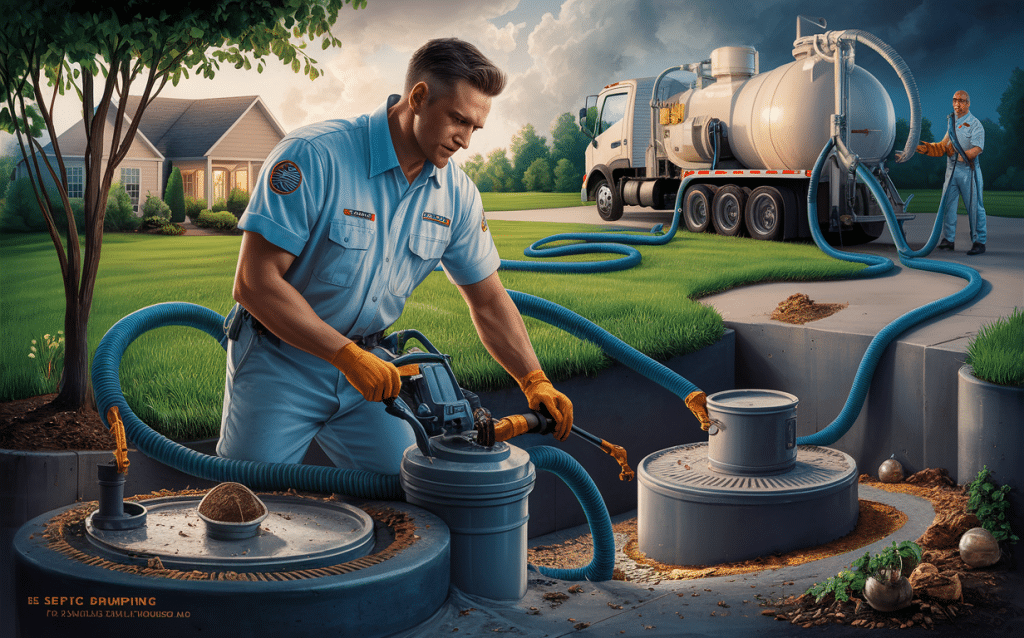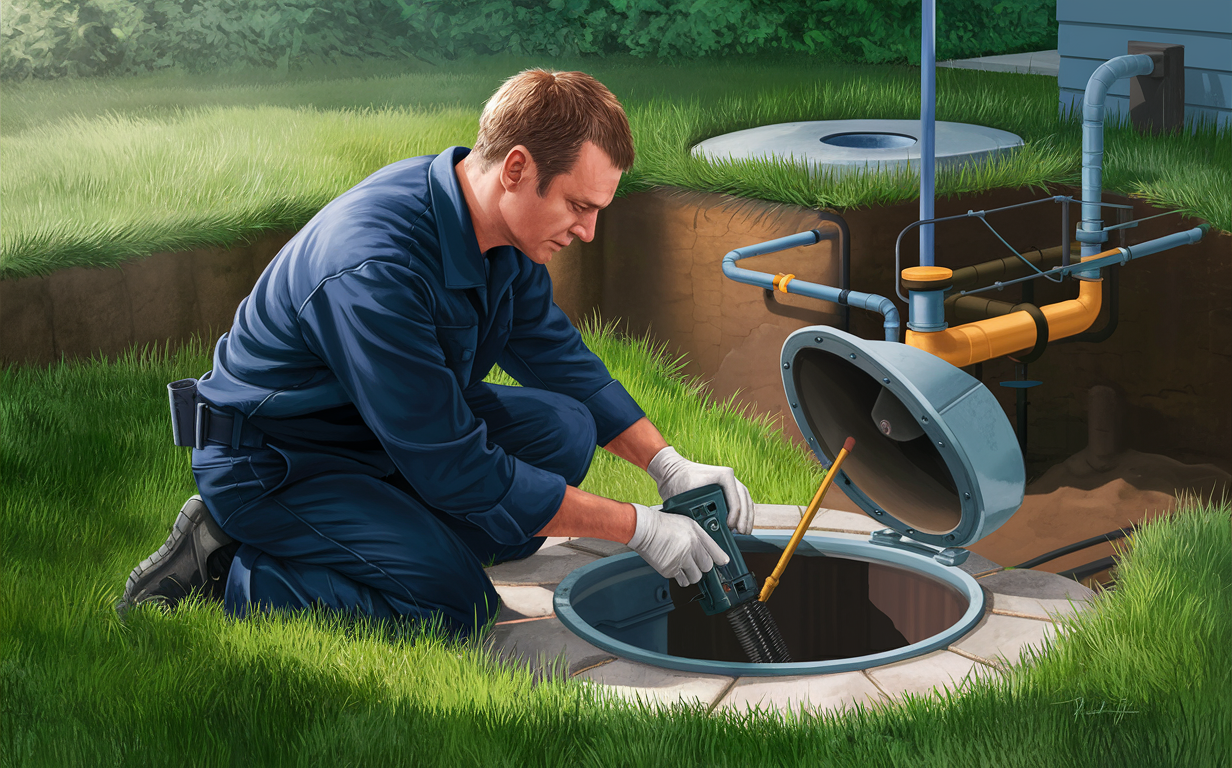Why Skipping Septic Tank Maintenance Can Cost You Big
A properly maintained septic system is essential for the health and safety of your home or business. Neglecting regular septic tank maintenance can lead to costly repairs, unpleasant odors, environmental damage, and even health hazards. Many homeowners and business owners only realize the importance of regular maintenance when it’s too late — and the damage has already been done.
At United Sewer Service, we provide expert septic tank pumping services to keep your system running smoothly and prevent expensive issues. Whether it’s a residential or commercial property, regular maintenance is the key to avoiding septic system failures.
How Does a Septic Tank Work?
A septic tank is an underground wastewater treatment system used in homes and businesses that are not connected to a municipal sewer line. Wastewater from sinks, toilets, and drains flows into the septic tank, where it separates into three layers:
- Scum – Oils and fats that float to the top.
- Liquid Effluent – The middle layer of partially treated water that flows into the drain field.
- Sludge – Solid waste that settles at the bottom and needs regular removal through pumping.
What Happens During Septic Tank Pumping?
Septic tank pumping involves:
Removing scum and sludge buildup.
Inspecting the tank for damage or leaks.
Checking inlet and outlet pipes for blockages.
Ensuring the drain field is absorbing effluent properly.
Consequences of Neglecting Septic Tank Maintenance

Failing to maintain your septic tank can cause serious problems for your property, health, and the environment. Here’s what can happen when regular maintenance is ignored:
1. System Backups and Overflows
When a septic tank becomes too full, wastewater has nowhere to go. This leads to:
- Toilets and drains backing up.
- Sewage overflow in your yard.
- Foul odors inside and outside your home.
Regular residential septic tank pumping prevents overflow and ensures proper system function.
2. Damage to Your Drain Field
If your septic tank overflows, it can flood the drain field with untreated wastewater. This causes:
- Soil contamination.
- Clogged drainage pipes.
- Costly repairs to restore the drain field.
3. Expensive Repairs and Replacements
When sludge builds up and is not removed regularly, it can damage the tank and pipes. This may lead to:
- Cracks or leaks in the tank.
- Broken inlet or outlet pipes.
- Full system replacement, which can be a significant expense.
Regular maintenance can help prevent these costly issues and extend the lifespan of your septic system.
4. Health Hazards
Untreated wastewater contains harmful bacteria and chemicals that can:
- Contaminate groundwater and drinking water.
- Cause bacterial infections and illness.
- Spread disease to pets and wildlife.
5. Environmental Damage
Overflowing or leaking septic systems release harmful pollutants into the environment, leading to:
- Water pollution in local streams and rivers.
- Algae blooms that harm aquatic life.
- Soil contamination that affects plant life.
6. Unpleasant Odors
A neglected septic tank produces methane, hydrogen sulfide, and ammonia gases, causing:
- Strong sewage odors indoors and outdoors.
- Reduced air quality around your property.
- Health issues from prolonged exposure to toxic gases.
7. Reduced Property Value
A failing septic system reduces property value by:
- Making the home harder to sell.
- Increasing repair costs for potential buyers.
- Lowering overall market value.
Best Practices for Septic Tank Maintenance
To avoid these costly consequences, follow these expert maintenance tips:
1. Schedule Regular Septic Tank Pumping
- Residential septic tanks should be pumped every 3–5 years.
- Commercial septic tanks need more frequent pumping based on usage.
Schedule a professional septic tank pumping in Middletown, NY with United Sewer Service today!
2. Watch What You Flush
Avoid flushing:
- Grease and oils.
- Feminine hygiene products.
- Paper towels and wipes.
- Chemicals and medications.
3. Limit Water Usage
Excessive water usage can overwhelm the system. To prevent this:
- Install low-flow fixtures.
- Fix leaks immediately.
- Spread out laundry loads over the week.
4. Keep Heavy Equipment Off the Drain Field
Driving or parking on the drain field can cause soil compaction and pipe damage.
5. Inspect Your System Annually
Annual inspections help detect minor issues before they become major problems.
6. Use Bacteria Additives (Optional)
Bacteria additives can help break down solids, but they don’t replace the need for pumping.
How Often Should You Pump Your Septic Tank?
| Household Size | Frequency of Pumping |
| 1–2 People | Every 5 years |
| 3–4 People | Every 3–4 years |
| 5+ People | Every 2–3 years |
| Commercial Use | Annually or biannually |
Benefits of Regular Septic Tank Maintenance
Prevents costly repairs.
Extends the lifespan of your septic system.
Improves property value.
Protects the environment.
Enhances overall system efficiency.
Why Choose United Sewer Service?
At United Sewer Service, we have years of experience providing top-quality septic tank pumping services for residential and commercial properties.
Licensed and experienced technicians.
Fast and reliable service.
Eco-friendly disposal methods.
Affordable pricing.
Schedule Your Septic Tank Pumping Today!
Don’t wait until your septic system fails — schedule regular maintenance with United Sewer Service today! Our expert team provides reliable, affordable service for both residential and

